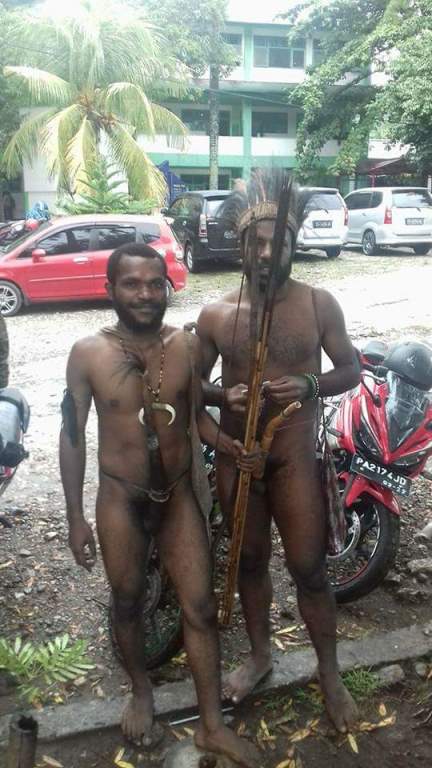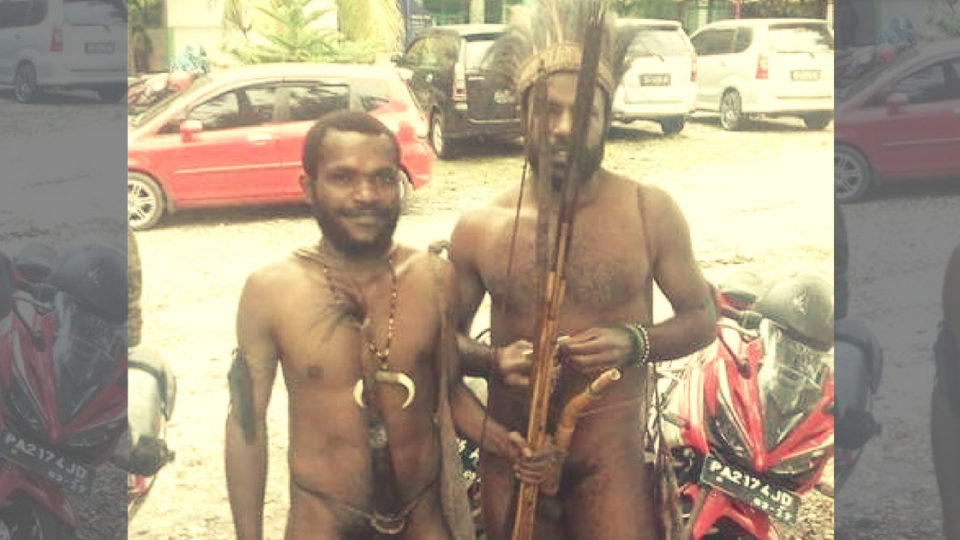People from Papua often face discrimination and suspicion from other Indonesians — often their pride in their homeland and traditional culture is mistaken as support for the region’s independence movement (which the government is clamping down on, even in its most peaceful forms).
One Papuan university student recently caused controversy for wearing a traditional tribal outfit including a koteka (penis sheath) to class, but he says that it is a matter of showing culture pride, no different than that of other Indonesians, and other students have started following his example.
Devio Tekege, a student at Cenderawasih University in the Papuan capital of Jayapura, wore a koteka to class on Monday, May 28. That Wednesday, four of his fellow students did the same thing, saying they wanted to help reassert pride in traditional Papuan culture against the increasing influence of foreigners.

Even in a Papuan city like Jayapura, the use of koteka is extremely rare and many fellow students and faculties wanted to take photos with the koteka-clad students. But they refused saying that their traditional dress was not simply meant to be a tourist attraction.
“Today I want to teach everybody that using traditional clothes is not about taking photos. There is a time to wear traditional clothes for photos but today is not that day. My friends and I are wearing these clothes for ourselves, not others,” said one student, Albertus Yapitai, as quoted by Suara Papua.
Of course, not everybody was happy about the students wearing the traditional outfits to class. When one of his lecturers reprimanded Albertus for wearing his koteka to class, he responded by saying, “If I wear traditional clothes and my friends wear batik clothes, what’s the difference?”
Papuan legislator John NR Gobay said he strongly supported the students asserting their pride in traditional Papuan dress, a reaction to the destruction of traditional culture in the name of modernization and a centralized national culture.
“I see they want to show that they are natives and that even though their parents still use koteka they can go to university. It shows people that koteka still exist in this land,” Gobay said as quoted by Tabloid Jubi.




